Trouble In The Berlin Birdcage: We Need to Talk About Homosexuality in the Arab World
Trouble in the Berlin Birdcage: We Need to Talk About Homosexuality in the Arab world
In the last 48 hours, the attack on two young Arab men wearing kippas in the middle of Berlin has dominated the headlines. Two days ago, the video of the attack was released to the public. The video, shot with a smartphone by the victim, Adam Armoush, clearly shows the young assailant attempting to strike him and his companion with a belt while shouting, ‘Remove the phone, you jewish ‘aars’ (which means pimp or troublemaker - depending on the context). The recording of the assault soon went viral, unleashing a heated debate on the state of anti-semitism in Germany and whether or not it is safe for Jews to walk with kippas in the streets of Berlin. The mainstream media engaged in the debate with superficial, provocative and misleading headlines - ‘Jews not safe in Berlin!’ ‘Anti semitism is on the rise!’ ‘73 years after the Holocaust, Jews still don’t feel safe!’
But, is there more to the story? Is this assault simply an anti-semitic attack, or did the three young men know each other from before, possibly on a more intimate basis?
Something just didn’t sit right with the story. First of all,it is strange that both Adam, and Knaan (the assailant) were speaking to each other in Arabic. Knaan, at the beginning of the video starts shouting ‘Remove the phone, remove the phone!’ in Arabic, which confirms that Knaan, at the very least knew Adam and Salah,( his other friend) were Arabs too. Furthermore, either Adam or Salah reply, in Arabic, that ‘everything is in the mobile.’ This interaction illustrates that there is some familiarity between Knaan and Adam or Salah.
Watching the initial interviews of Adam with Deustch Welle, I was immediately struck by his decisively gay coded body language. Being a gay male myself, having lived in the Middle East for the past two years, this was an intuitive red flag that there may be elements of this narrative that would go unreported. The gay communities of the Middle East are a parallel shadow world, privy only to its own members, and a select cadre of foreigners who are able to grasp its unique culture, language, codes, and customs only through an extensive period of initiation. Though widespread in practice, the homosexuality is still totally taboo in MENA, being criminalized and punishable by death in most parts of the region. This additional social, legal, and familial pressure placed on the gay community can and does result in numerous acts of state-sanctioned and non-state sanctioned violence against members of the Middle Eastern LGBT community that often must necessarily go unreported: to reveal your true sexual identity is to incriminate yourself by virtue of existing. Thus, these communities thrive in silence, where trust must be earned and proven, and danger is omnipresent.
Adam’s downcast gaze when the Deustche Welle reporter asked him to describe the assault were my second visual cue that something else was going on in his mind other than reporting the facts of the event verbatim. He seemed ashamed, ashamed to admit what, as far as the official narrative goes, was a blatant attack on him for presenting as Jewish. What hidden facts about the case lay behind Adam’s downcast gaze?
As I began to dig deeper in to the case, I found a interview (Deutsch Welle, “How dangerous is it to wear a Kippa in Berlin?” http://www.dw.com/en/how-dangerous-is-it-to-wear-a-kippa-in-berlin/av-43445956) with Adam and his friend Salah, who was also present during the assault. Similarly, Salah immediately struck me with his distinctively gay coded body language, and a mona lisa smile at the beginning of the interview, which he flashed briefly as he shot a knowing glance at Adam. What did these boys know that they were not repeating?
I replayed the videos of the assault countless times, pausing intermittently in attempt to catch a glimpse of the assailant, now identified as K and discern some of the Arabic exchanges. Somewhere in my numerous viewings of the horrific belt attack the realization clicked in my mind: I witnessed such a belt attack before.
The incident in question occurred in Egypt, in which a self-identifying as homosexual Arab male attacked one of his friends in public, in the streets, under the impression that his honor was being threatened by the presence of the other (my friend). In the patriarchal cultural expressions of MENA street life, honor and shame are deeply rooted social values that bear dire consequences if transgressed. In MENA, like in many patriarchal societies, gay males must at least perform heteronormatively in many cultural spaces, which in instances of violence or perceived threats, can result in exaggerated displays of dominance or power. In heterosexual rows, on the contrary, weapons (improvised, or otherwise) are rarely utilized, as typically multiple parties are involved in order to de-escalate the situation before it becomes too violent.
As far fetched as it sounded, even in my own mind, this incident intuitively bore all the hallmarks of a classic middle eastern homosexual lovers quarrel, from the body languages/ages of the characters involved, to the nature of the fight in question. But could I prove it?
I had to dig deeper.
Upon further investigation, it does indeed seem that all three parties are moving in typically gay or queer circles in Berlin. Adam’s public FB profile hints at him being in a relationship with a close friend of his (cannot be named due to legal reasons). Upon further investigation, there is an abundance of declarations of love for each other. As shown here,
‘The best way to enjoy life is to be with someone you love🌹💗🙈’
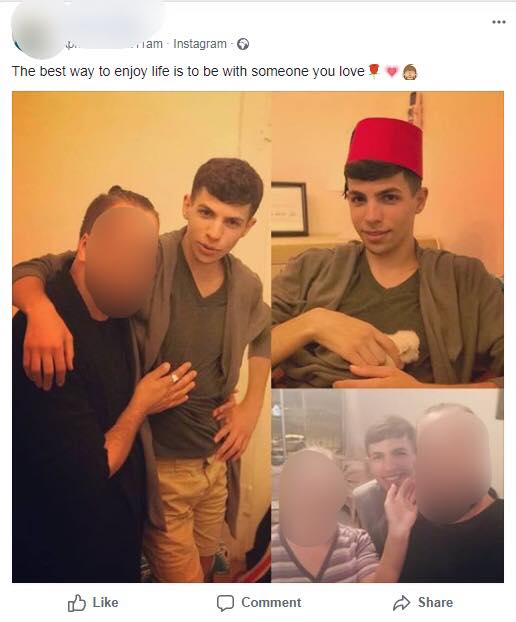
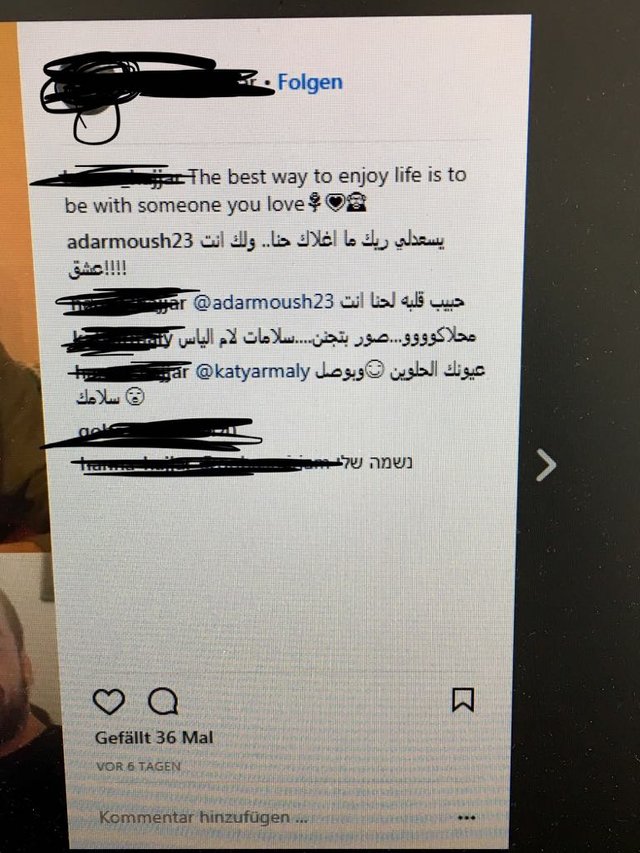
Translation: Adam replies - God help me, you are so precious! I swear you are love!
Anon man - You are my habeeb albi (my sweetheart).
Anon person: So cuuutee!! Wonderful picture.
Furthermore, Salah, his accompanying friend, has teased and hinted that he is also gay - as evident by the comments,
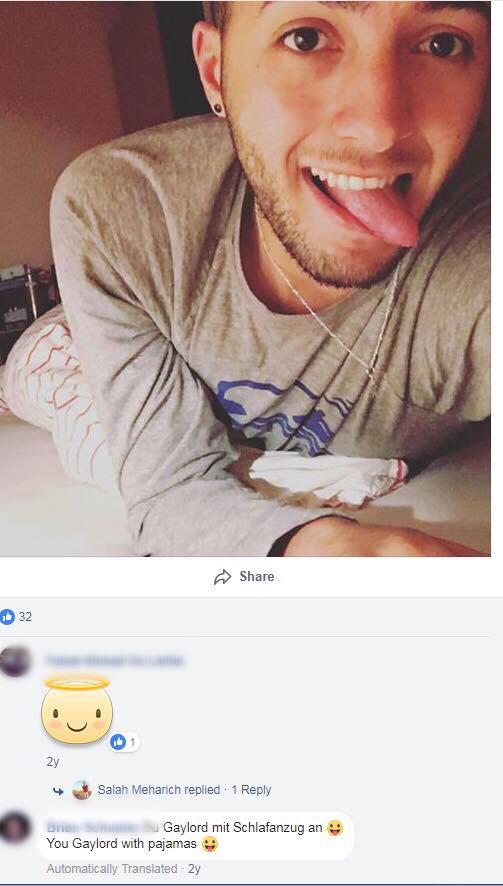
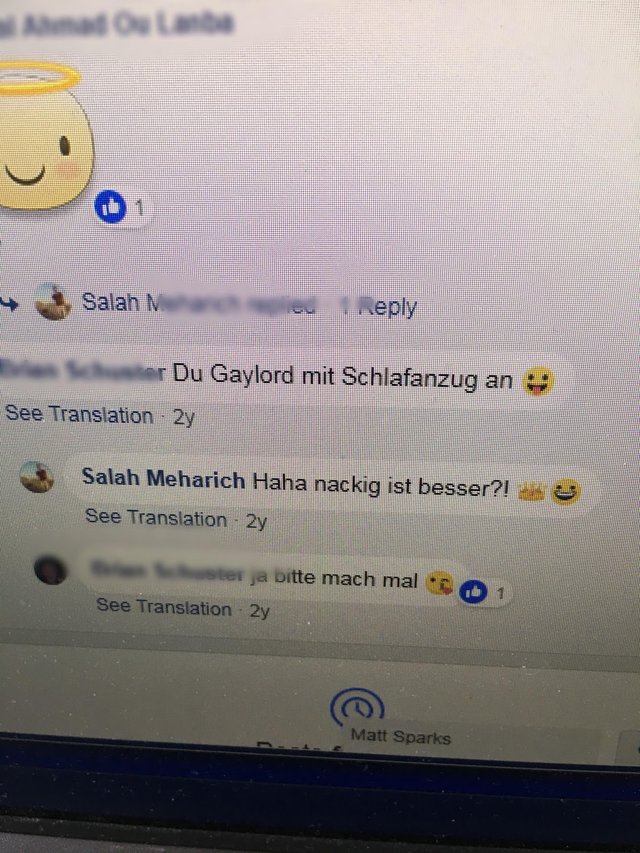
Translation- male Anon: you are a gaylord with pjamas?
Salah’s response: Better if I was naked ;) ?’
Anon- Yes please!!
Finally, Knaan, the assailant also seems to hint that he is also gay as evident by his playful response when one of his friends called him a ‘Luti Playboy’. Luti is the arabic word for gay.
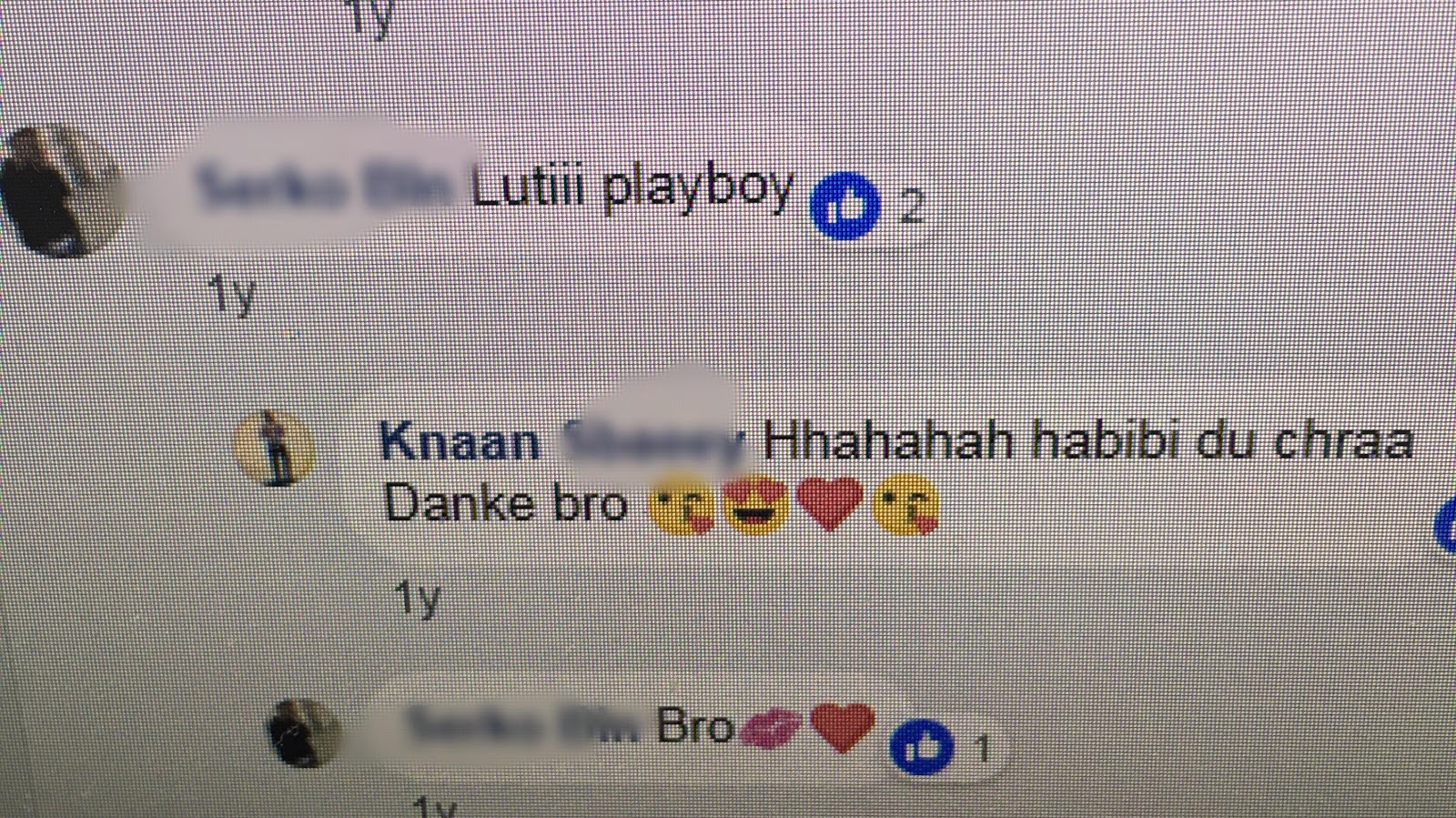
It is unknown what occured prior to the filming - as the clip shows a very small part of the interaction and the assailant has not given his version of the events. Why would Knaan shout in arabic demanding that Adam stop filming? This is Germany after all. Unless of course he knew the two men were Arab. But, how would he know if according to Adam’s narrative, they were minding their own business until Knaan started attacking them?
Moreover, in the video itself, there appears another man who roughly pushes Knaan away from the victim - he could be one of the alleged two other men present. The alleged presence of a third party is not evidenced by any of the publicly released videos of the incident.
The media has missed the mark by not thoroughly investigating this incident, or at least critically examining the the narrative here. Was there a previous interaction? Did these three know each other prior? Instead the media has once more reduced the conversation to the trope of ‘Violent arab anti-semitic men flooding Europe’. Should we be talking more widely about the complexities of masculinity and invisibility of homosexual Arab men?
Of course any form of discrimination and racism is abhorrent, and there are very real attacks on minorities in Europe, including but not limited to Jews, Muslims, Asylum seekers, refugees and others. However, to establish this narrative as motivated purely by anti-semitism is dishonest journalism and can lead us to superficial understanding of other complexities of gender, sexual orientation and racism.